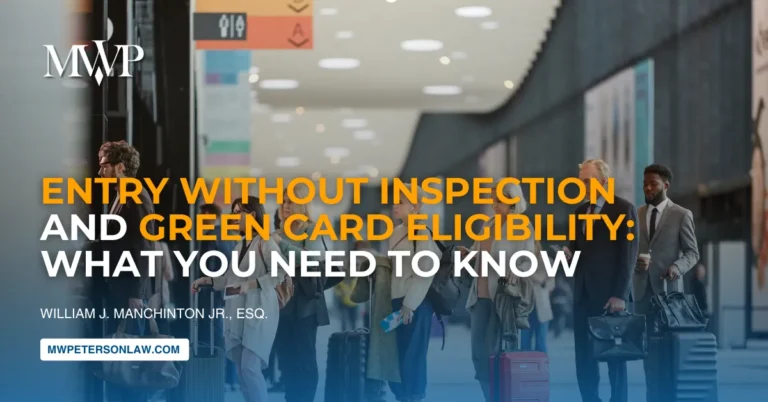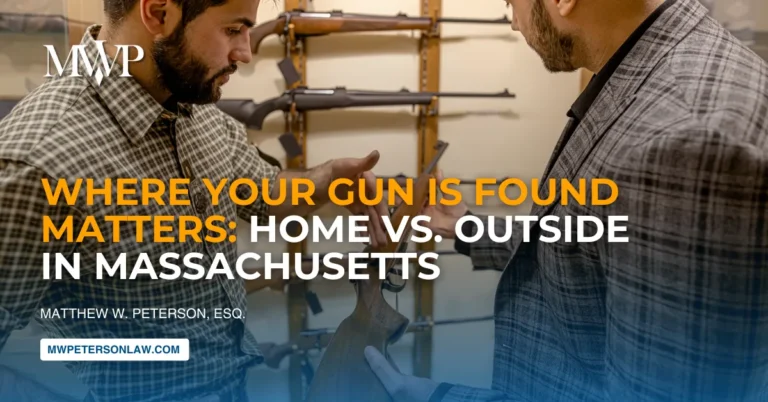Understanding 60-Day Gun Law Grace Period in Massachusetts
If you’re moving to Massachusetts and you legally own firearms, it’s important to understand our state’s gun laws—especially the 60-day grace period that applies to new residents. As a Massachusetts firearms lawyer who regularly represents clients in firearm cases, I want to walk you through what this grace period means, what it covers, and what risks you should be aware of if you’re moving here with guns.
What Is the 60-Day Grace Period?
Massachusetts is one of the strictest states in the country when it comes to gun laws. To legally own or carry a gun here, you generally need to have a Massachusetts-issued License to Carry (LTC) or Firearms Identification Card (FID).
But there’s a small exception built into the law for people who are moving into Massachusetts. Under Massachusetts General Laws Chapter 140, Section 129C(j), a new resident is allowed to bring in firearms and ammunition that they already own before they move—and keep them legally in the state for up to 60 days without having a Massachusetts gun license.
This short grace period is meant to give you time to settle in and apply for the proper license. But it’s a narrow window—and if you’re not careful, you could find yourself facing serious criminal charges.
What Does the Law Say?
Here’s what Section 129C(j) of Chapter 140 says in plain terms:
“Any new resident of the commonwealth shall have 60 days from the date the resident moves into the commonwealth to obtain the required license or firearm identification card…”
In other words, the law gives you 60 calendar days from the day you move to legally possess your guns and ammo without a Massachusetts license, so long as those firearms were already yours before you moved.
What Happens After 60 Days?
Once those 60 days are up, you are expected to have your LTC or FID in hand. If you still possess firearms after the 60-day window and haven’t been issued a license, you could be charged with:
Unlawful possession of a firearm, under M.G.L. c. 269, § 10(a) (a felony with mandatory jail time), or
Unlawful possession of ammunition, under § 10(h).
These are serious charges with real consequences. There is no automatic extension, even if your license application is still being processed. That’s why I strongly advise clients to apply for their license as soon as possible after moving.
Who Qualifies as a “New Resident”?
The courts have made it clear that the 60-day exemption only applies to people who truly intend to move to and live in Massachusetts. In Commonwealth v. Paul, the court said the exemption didn’t apply to someone who was just passing through. You must show that you actually moved here—for example, with a new lease, job, or Massachusetts driver’s license.
If you’re not sure whether you count as a “new resident,” talk to an attorney before relying on this law.
Do You Need to Apply During the 60 Days?
Interestingly, the statute doesn’t require you to file your application during the 60 days—but in practice, this is one of the best ways to show that you’re trying to follow the law. If you’re stopped by police or questioned about your firearms, being able to show that you already applied for your license, took the safety course, and are waiting on approval can make a huge difference.
Even though the law gives you the full 60 days, I recommend applying within the first couple of weeks after you arrive. That way, you’re less likely to run into problems—and if your case ever ends up in court, you’ll have a stronger defense.
Can You Use the 60-Day Rule as a Legal Defense?
Yes. If you’re charged with illegally possessing a firearm or ammunition during that first 60-day period, the law allows you to use the “new resident exemption” as a defense.
The Massachusetts Supreme Judicial Court made this clear in Commonwealth v. Harris, a 2019 case. The court said that the 60-day rule is a legal exemption—which means that if you prove you moved to Massachusetts less than 60 days before the incident, you shouldn’t be found guilty of the charge.
However, this defense only works if you meet all the conditions. In Harris, the defendant had moved months before and never applied for a license—so the court said the exemption didn’t apply.
Common Mistakes to Avoid
Here are some common mistakes I’ve seen people make when they rely on the 60-day grace period:
Waiting too long to apply for your Massachusetts license. Don’t assume that having a license pending after 60 days will protect you—it won’t.
Carrying guns in public during the grace period. The exemption allows you to possess your firearms, not carry them around.
Bringing in new firearms during the 60-day period. The exemption only covers guns and ammo you already owned when you moved.
Possessing “large capacity” firearms or magazines. These items are more tightly regulated and may not be covered by the exemption.
Final Thoughts: Be Smart and Proactive
If you’re moving to Massachusetts with legally owned firearms, don’t panic—but don’t be casual, either. The 60-day grace period is helpful, but it’s limited. You should act quickly:
Take a state-approved safety course.
Apply for your LTC or FID right away.
Keep your guns stored safely and avoid carrying them in public.
Document your move and application in case you ever need to prove your timeline.
And if you’re ever charged with a gun crime after moving to Massachusetts—even if you think you’re protected by the 60-day rule—get legal help immediately. As a criminal defense and firearms attorney, I’ve helped many clients navigate these situations and defend their rights in court.
Don’t try to handle it alone. Massachusetts takes gun laws seriously, and so should you.
If you have questions about Massachusetts firearms laws or need help with a charge related to gun possession, contact the Law Office of Matthew W. Peterson today for a consultation.











